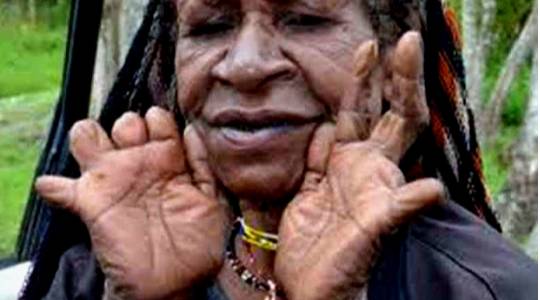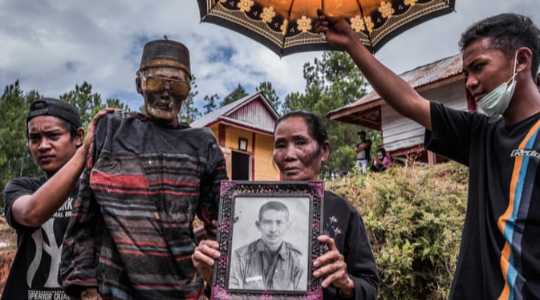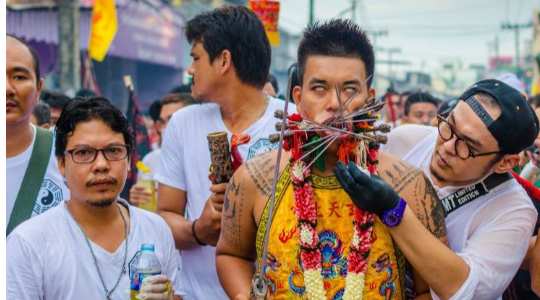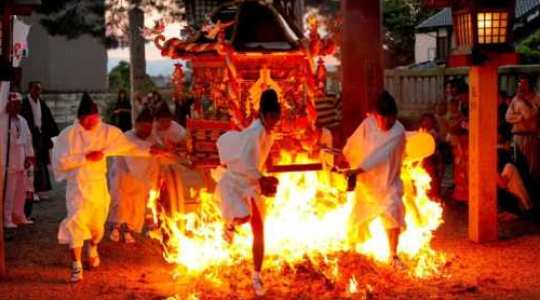The world is filled with diversified people and such are their customs and way of life. What is acceptable in one tribe can be a taboo in another.
Here are a few of the weirdest customs from around the world that might interest you.
Aunties Having S3x With Groom
The Bayankole tribe have a weird marriage rite carried out by the aunt. The aunt is saddled with the primary responsibility of confirming that the groom is potent and that the bride has defended her virginity before the marriage is consummated.
As a potency test for the groom, the aunt was sometimes required to have s3x with the groom for confirmation of his potency and virility.
She also had to “test” if the bride is still a virgin before they are allowed to consummate their marriage.
In other traditions, the aunt is said to go as far as listening in or watching as the bride and groom have s3x in order to prove the couple’s potency.
Now, the school, popular magazines, peer groups, and mass media are rapidly changing the narrative.
Nine Emperor Gods Festival
Also known as the Nine Emperor Gods Festival, Thailand’s annual Vegetarian Festival is a very gruesome scene to watch if you are not strong enough.
Safety pins, daggers, and fish rods, swords, knives, and badminton rackets are among an array of sharp objects pushed through Taoist worshippers’ cheeks at the festival.
The event begins in Phuket on the first evening of the ninth Chinese Lunar month each year and takes place for nine days.
Many religious devotees slash themselves with swords and pierce their cheeks with sharp skewers for the festival, alongside committing other painful acts like walking over burning coals.
Many worshippers work themselves into a trance before the piercing takes place, which is said to numb the pain of the ritualised mutilation.
As hundreds of worshippers march down the streets showcasing an unbelievable variety of piercings, traditional music is played on the streets.
Along the way, residents will offer food, water, and sweets to the participants whose rituals are meant to ward off bad luck and cleanse sins.
Participants believe that each mutilation marks a sacrifice. The piercings then allow them to take on the sins of others in order to purify themselves and return favour to the community.
The celebration dates back to 1825, according to local folklore, when a visiting Chinese opera troupe fell ill.
They are believed to have adopted a vegetarian diet and carried out Taoist rituals in an effort to improve their health.
Trojan Tribe Tradition of keeping the dead

More than a million people in the Toraja region of Sulawesi in eastern Indonesia don’t believe in burying the dead as soon as they die.
In fact, they don’t consider them dead. They refer to their dead as sick.
After someone dies, be it an infant or an elderly, it may be months, sometimes years, before a funeral takes place.
In the meantime, the families keep their bodies in the house and care for them as if they were sick.
They are brought food, drink, and cigarettes two to three times a day. They are washed and have their clothes changed regularly.
The dead even have a bowl in the corner of the room as their “toilet”.
Furthermore, the deceased are never left on their own and the lights are always left on for them when it gets dark.
The families worry that if they don’t take care of the corpses properly, the spirits of their departed loved ones will give them trouble.
In Torajan culture, a person’s funeral is the most important day of his or her life. Funerals can be so expensive that successive generations might be saddled with crippling debt. The events can last a week and involve the slaughter of hundreds of livestock.
Families in Toraja often save for years so they can afford the elaborate exchanges of gifts, money, and freshly slaughtered meat that take place during the funeral, which is seen as a key means of redistributing wealth in Torajan society.
Dani finger-cutting funeral custom

The Dani people of Paupau have a strange funeral ritual that leaves women amputated whenever they lost a loved one.
For the Danis, fingers symbolize harmony, unity, and strength. Fingers, despite their different lengths, work together cooperatively to perform tasks.
According to the Jakarta Post, the Dani believe misfortune due to the death of a family member can be eliminated through finger amputation. The practice is also viewed as a sacrifice to appease the spirits.
Their unusual practice of finger amputation, called Ikipalin, was banned by the Indonesian government a few years ago — however, many older female members of the tribe can be identified by their hands, and it’s believed this practice still continues in secret.
Tidong No Bathroom Post-Wedding Tradition
The Tidong community in Indonesia have a somewhat weird marriage tradition that they surprisingly follow till date.
At first, as a guest, you’ll find the custom of the groom not allowed to see his bride’s face until he sings her several love songs adorable.
The curtain separating the couple is raised only after the groom completes the singing task, they can see each other on a dais.
The wedding custom doesn’t end as sweet as it started. It is said that the bride isn’t allowed to leave the confines of her home during the engagement period, and a groom who arrives late to the wedding needs to pay a fine (usually jewelry).
The weirdest of the Tidong custom is that the bride and the groom aren’t allowed to use the bathroom for three days after the wedding.
Yes, they can’t go to the bathroom for any reason at all, whether to poo or wee, all that has to be on hold for three good days!
As weird as this custom seems, it is very normal to the tribe and they adhere to it with the help of families and friends who monitor them throughout the days.
Hiwatari Shinji Where Worshippers Walk In Flames Of Fire
Hiwatari Shinji is a Buddhist fire walking ritual performed throughout Japan and is held in the Akibasan Entsu-Ji shrine on the second Sunday of every December.
The Homa (Goma) ritual of consecrated fire is unique to Vajrayana and Esoteric Buddhism.
The daily burning of wood offerings is performed by qualified priests and is believed to have a powerful cleansing effect spiritually and psychologically.
During the Hiwatari Shinji, this ritual is taken to another level, with a burning pathway placed before the shugenja priests.
To elevate to a higher level of concentration they chant kuji-in, nine syllable mantras common in Mikkyō Buddhism, before striding out across the heat.
The ritual’s purpose is to pray for protection from fire and other tragedies that can come from the elements, as well as against theft, traffic accidents, poverty, and early mortality.
Once the shugenja have finished, it’s the turn of the followers to take part in the cleansing ritual.
Followers take turns to walk in the fire. This is usually done around 7p in the evening until 9 am.




















